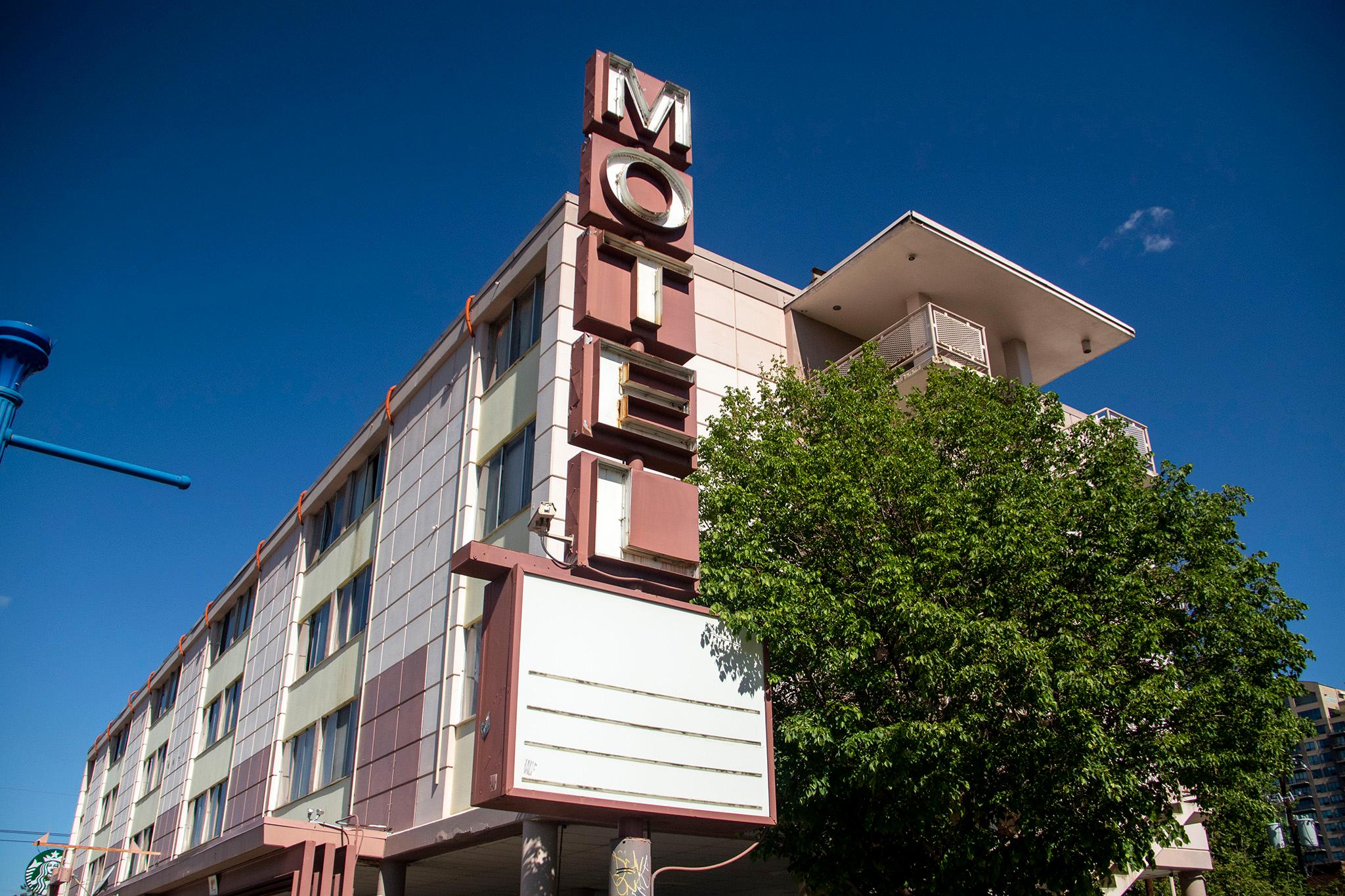The strip of East Colfax from about Fillmore Street to Steele is an average strip of retail.
Then there's the All In Motel at 3015 East Colfax. A currently crummy court that used to be the belle of the block, going back to the late 1950s when it was called The Fountain Inn. According to Westword, there was "the fabulous Gold Room restaurant," which closed in '69. Then in 2006 there was the 70's themed RockBar, where folks went to relive their "wasted youth."
The motel has a long history of highs and lows and now it's in a decayed trough.
Brian Toerber, who purchased the property in 2016, is seeking to transform All In.
His vision: a boutique hotel and restaurant.
He wants to revamp the current building, creating 54 rooms at 265 square feet, and construct a new building to house 27 additional rooms at about 335 square feet. Toeber also wants to add a restaurant, a pool that could be used by nearby residents via day passes and a coffee shop. To fund the approximately $31.2 million project, Toerber is looking to secure money from the Denver Urban Renewal Authority via tax increment financing.
And he's getting it.
In a 9-3 vote, City Council agreed to a proposal that would allow DURA to fund redevelopment of the motel and create the 3015 East Colfax Urban Redevelopment Area. Councilmembers Robin Kniech, Paul Kashmann and Candi CdeBaca, whose district the motel lies in, all voted no.
DURA? TIF?
DURA is responsible for identifying areas that are vacant, deteriorated or "blighted." Once those areas are found the agency works with private developers to figure out how to redevelop those sites.
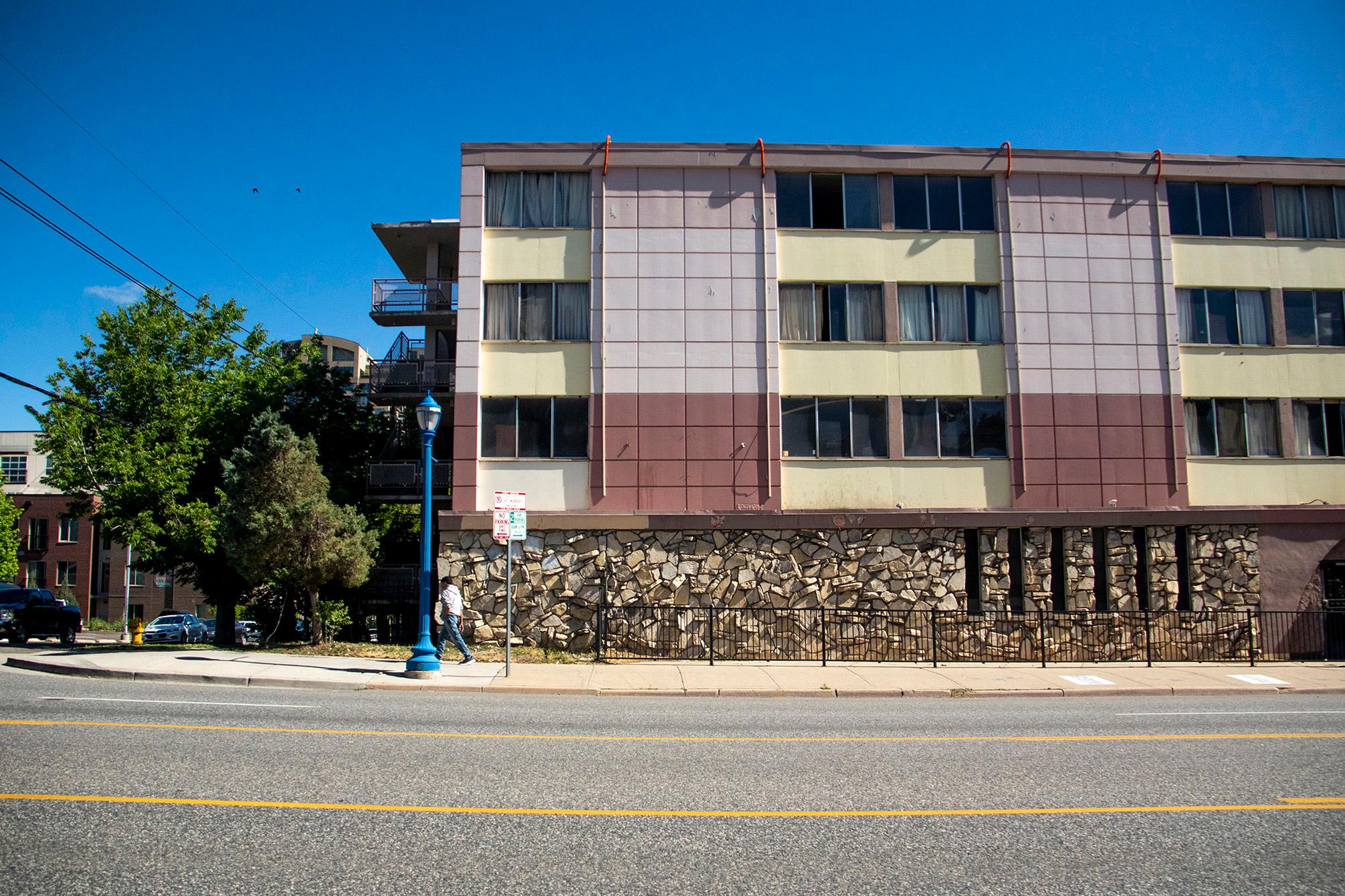
According to Tracy Huggins, the executive director of DURA, All In meets several criteria to deem the structure blighted, including unsafe conditions and the existence of substantial physical underutilization or vacancy of buildings.
To fund these redevelopment projects DURA uses TIF funding. Huggins explained that tax increment funding is "a tool" that takes newly created tax revenues, specifically sales and property taxes, resulting from the project and uses that money for reimbursement of redevelopment costs.
Huggins broke it down like this:
Currently All In pays property taxes. Generally speaking, let's say, a third of those taxes goes to the city and two-thirds goes to Denver Public Schools. Whatever taxes are currently being paid is considered "the base" and will continue to go to the city and DPS. Now, whatever increase in taxes the project accrues will go to DURA.
"We don't increase the tax levy," Huggins said. "It's a reapportionment of the taxes that the project area was generating in comparison to what the new redevelopment area will generate. It's only the increase over the base that we are able to capture and we can only capture it for up to 25 years. We can capture both increases in property taxes and sales taxes."
Here's a little more background:
When Toerber initially purchased the motel, he intended to use the site for micro-apartments, which he already does at two other nearby properties. But Toerber said he was contacted by then City Councilmember Albus Brooks and was asked to consider keeping the All In as a hotel. After some thought and talks with other community members, Toerber decided to go ahead with the hotel idea.
Funding became Toerber's next problem.
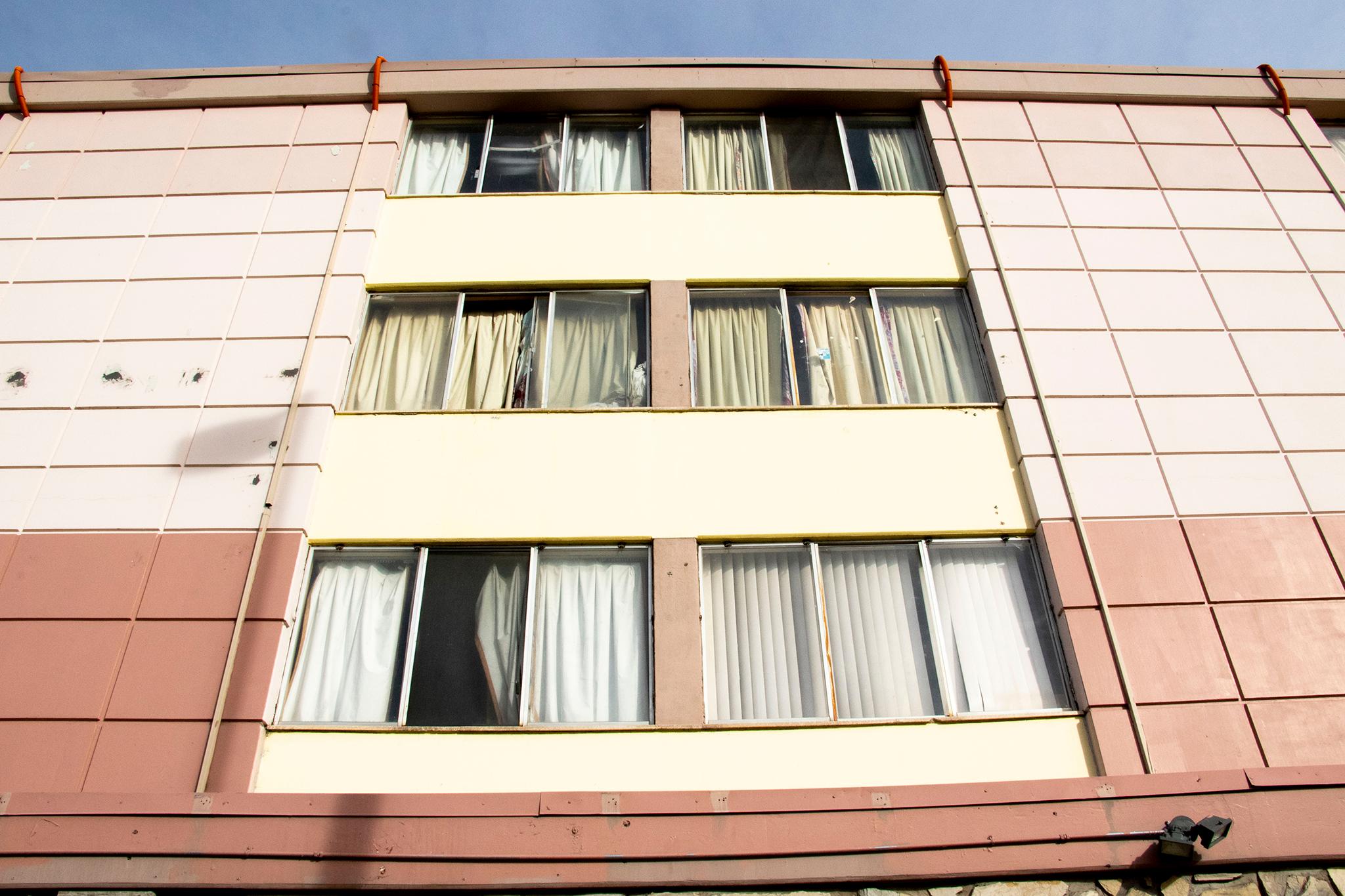
"When we first applied for assistance, the feedback from lenders was not favorable," Toerber said. "From the standpoint of it's on East Colfax. It's boutique in nature. It's independent. It doesn't have a hotel flag. Those were hard hurdles to get over prior to COVID. Now, you layer on the impacts the hospitality [industry has] as a result of the pandemic and those conversations are even more challenging today than they were before."
Toerber eventually found a lender and hotel operator, New Waterloo. During the city council meeting, Huggins said DURA is expected to cover about $3.5 million of the funding.
So, why the contention? Some say the move leads to less affordable housing
Well, prior to March 2022, the motel accepted "housing vouchers" for low-income residents or those experiencing homelessness.
Operations closed in March and no new residents have been accepted since. There were 37 residents staying at the All In and DURA said they would work to relocate the residents. Huggins said so far 13 occupants "have secured stable housing" while the others are receiving assistance from a housing navigation team. Some have declined the help.
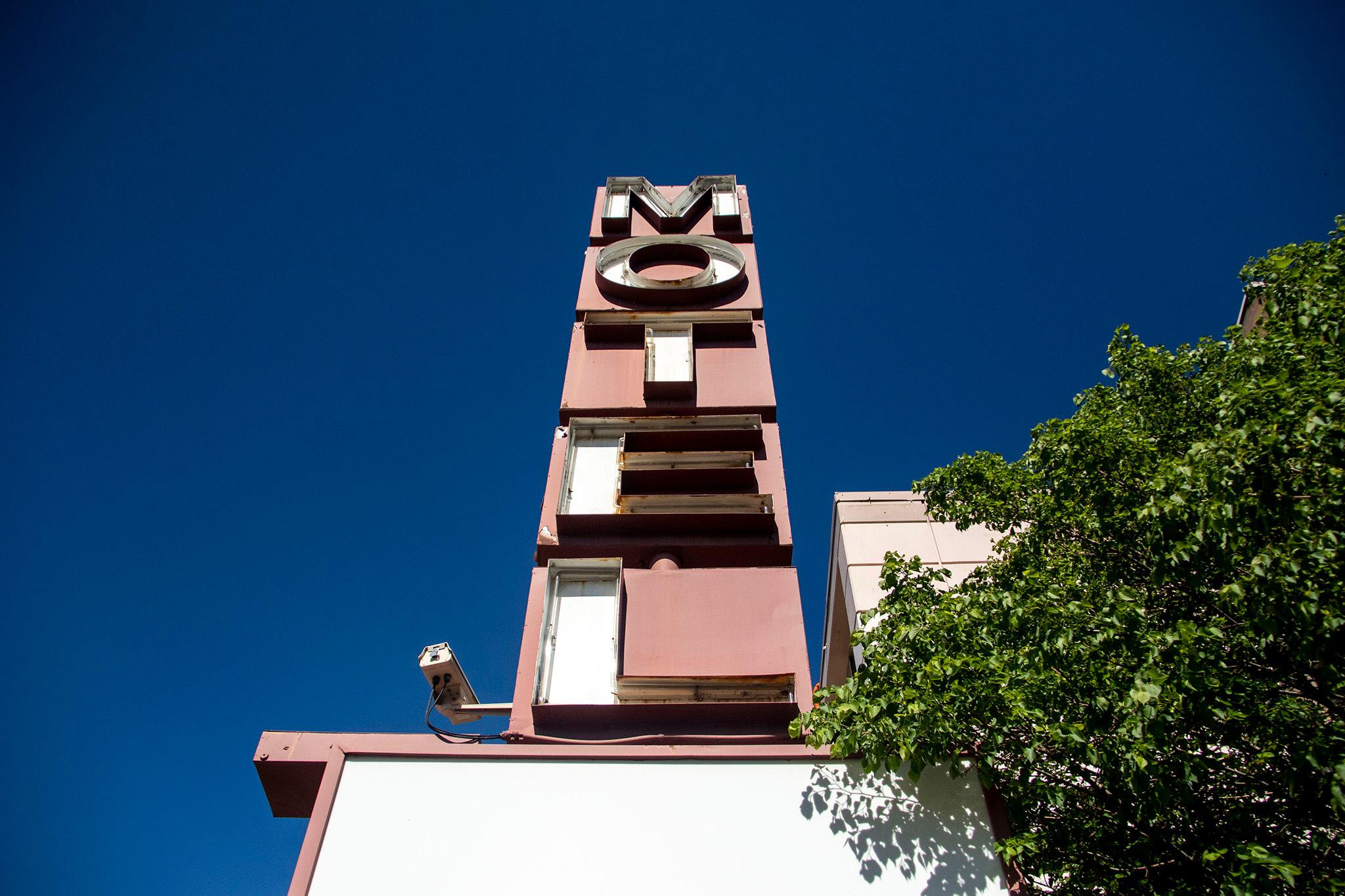
Residents acknowledged DURA's efforts, but also pointed out that not all hotels in the city accept housing vouchers. Several residents who spoke at council said turning All In into a boutique hotel eliminates a valuable transitional housing option.
"Even if all of the current residents of this hotel are moved into a great housing situation ... that doesn't change the situation that this is a low-income, cheap, attainable housing option that is badly needed in our city that would be gone," one resident said.
Residents added DURA funding should be used to create permanent housing.
Those in opposition also said that while Toerber bought the property in bad conditions, he didn't do much to improve the building. When asked by Kashmann how much Toerber has invested into the building, he said around $75,000. Toerber added that the family that operates the motel, the Kim family, put in an additional $100,000, since Toerber has owned the property. Toerber said as operators the Kims are responsible for repair.
"It doesn't sound like a huge effort was made to bring things up to a higher standard," Kashmann said.
Toerber said in sticking with the "promise" of renovating the hotel, fixing the rooms or other issues "wouldn't be a good use of dollars to try to do that work when the intent really is to reposition it into something that's more of a contributing business to the community."
But not all residents were against the renovation.
Several registered neighborhood organizations, such as Capitol Hill United Neighbors, and nearby residents spoke in favor of the DURA funding. Residents said the change would make the area safer.
Since the hotel will have a pool and retail space for local businesses, residents said it adds value to the neighborhood. Others said having a hotel on East Colfax would give people visiting National Jewish Health and musical talent playing at nearby venues a closer place to stay.
"A boutique hotel supports our longstanding goals to breath vibrancy into that section of Colfax," said a letter from the Board of Directors from the Bluebird Business Improvement District.
"It will bring customers to Colfax businesses while [fulfilling] latent demand for a non-corporate option to visiting Denver and adding to the City's sales tax base. Perhaps more importantly, with the range of on-site amenities that will be open to the neighborhood, your proposed approach transforms a nuisance property into one that offers a strong benefit to the community."
Council was split
Amongst the councilmember discussion, Kniech and CdeBaca agreed that using DURA funding for this project wasn't appropriate. Kniech said public financing is "rare" and should be used on "the highest and most important uses." CdeBaca added that hotels serve as temporary housing for many Denverites and with increased room rates, the hotel would be out of reach for those who need emergency housing.
Councilmember Debbie Ortega said DURA funding hasn't always been used for permanent housing, pointing to a mixed-use project at the former Denver Post printing facility and a hotel project on Brighton Boulevard. Although the hotel is in District 9, Councilmember Chris Hinds said next year, All In will be in District 10, his current district.
Hinds said currently most of the projects in District 10 are apartments and that having a new hotel will give the community a space to convene.
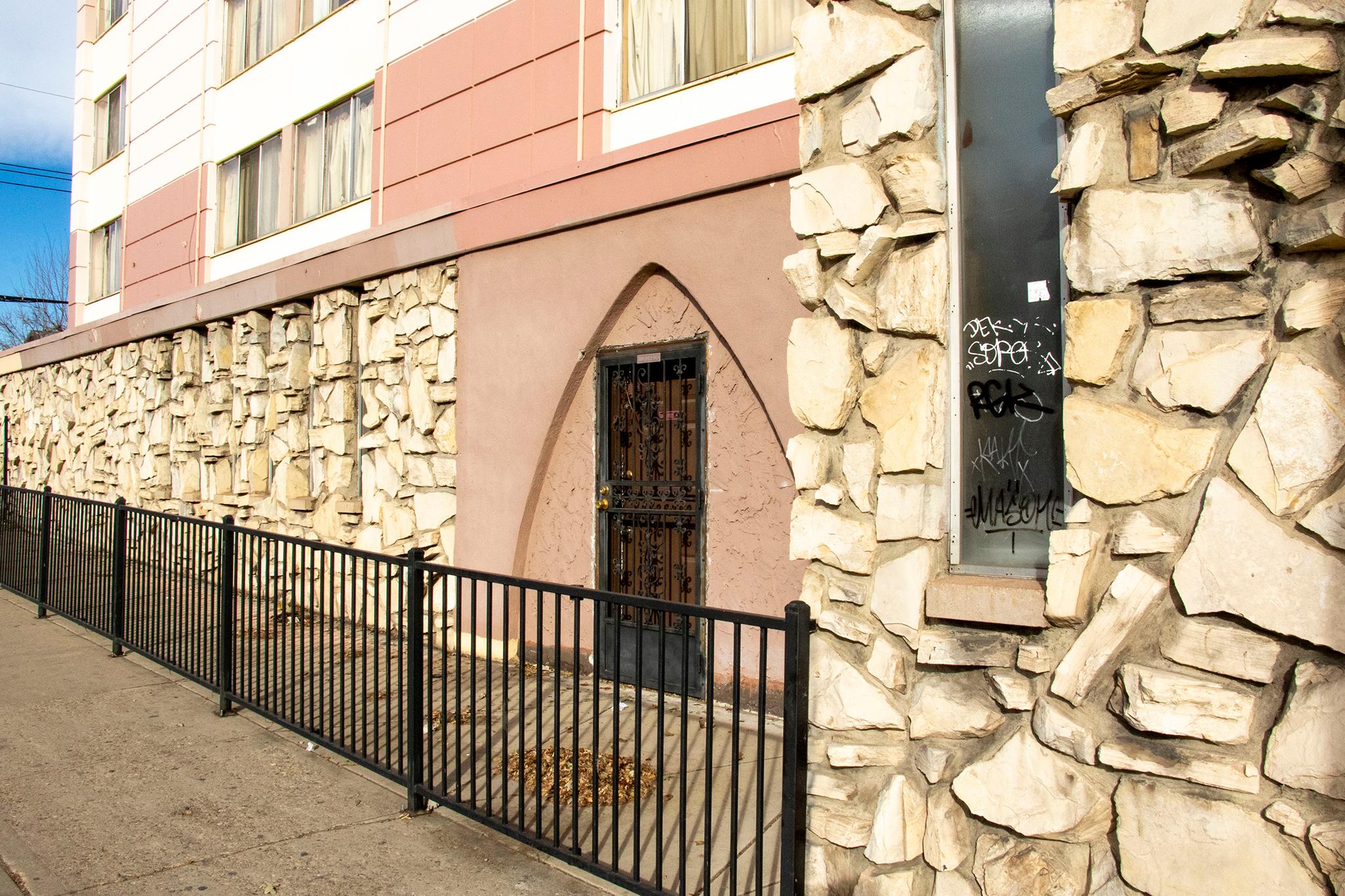
"We are in an affordable housing crisis in our mile high income city," Hinds said. "But even though we have a housing crisis, it doesn't mean we must devote all resources to housing. It's okay that this project contends to add hotel rooms. This project intends to add multiple amenities designed for the community known as the third place. City Park West is in need of a third place."
Though residents were split evenly and council wasn't unanimous, the project is moving forward. Several councilmembers and residents asked what would happen if the project fails and Toerber said the building would go into foreclosure and the history of All In would repeat itself.
Toerber, of course, doesn't want this to happen and neither do those in opposition. But ultimately, the motel will undergo a transformation. What happens next hasn't been written yet.
"We've been the problem. We've been the blight on the block," Toerber said. "We're trying to bring it back to a level that surrounds us and not detract from the community. I hope people look at this as a project befitting the community."
Correction: This article was updated to correct the spelling of At-Large Councilwoman Robin Kniech. We regret the error.

